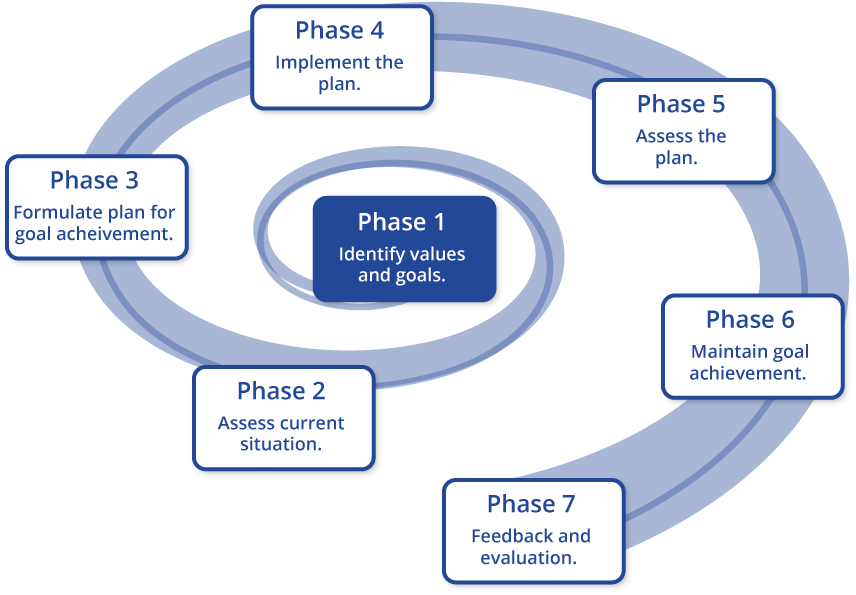What differentiates life coaching from other forms of coaching is that it acknowledges that all facets of life are interrelated when we formulate and prioritize goals for achievement. In order to identify our priority goals we may need to evaluate the balance of life as it exists for us across a number of dimensions such as health and wellness, career, motivation, finance, relationships, friends and family, intimacy, personal growth, creativity and rest and recreation.
If you want to improve motivation at work, for example, you may need to look at your health and wellness first or rebalance your family life so you are less tired and have more positive energy. This may then give you the space and time to work more productively and efficiently and gain more satisfaction both at home and work.
Career planning needs to take into account family responsibilities, relationships, time for recreation and hobbies, financial goals, and personal development. Working towards the next career move may require adjustment towards improved communication skills, family/work balance, better work practices, leadership development and financial planning.
A major life transition such as divorce will have ramifications across your whole life including intimacy, finances, place or residence, relationships with significant others, work performance and health and wellness. To move through this change can be difficult and coaching assistance is given to help you stay on course.
In the first Discovery session in life coaching we discover what aspect of your life you may want to address and evaluate some of the drivers for change across other areas of your life. You may be surprised.
Stages of Life Coaching
Coaching is action and future oriented. All goals are measurable and formulated in an action plan with a specific timeframe fro achievement. Progress towards achieving your goals is evaluated based on measures of progress in your action plan. The following stages are followed:
Phase 1: Identify the client’s values and goals
Phase 2: Assess the client’s current situation
Phase 3: Formulate a plan for goal achievement
Phase 4: Implement a plan for goal achievement
Phase 5: Assess the effectiveness of the plan
Phase 6: Maintain goal achievement
Phase 7: Feedback and evaluation

Evidence Based Strategies for Change
StartAnew supports you to achieve your goals using evidence based coaching strategies for change. Coaching uses these strategies to assist a person to be proactive, identify solutions and look forward to the future. Many of these coaching strategies have been adapted from psychological frameworks and include but are not limited to:
- Cognitive behavioral approaches focus on changing behaviors by looking at core beliefs, thoughts and emotions
- Neuro linguistics is about changing thinking processes and using language to find new ways of constructing the world around us
- Solution focused approaches have a positive focus on peoples’ strengths, planning for the future, and building on successes
- Narrative approaches draw on the ability of people to tell or retell a story about their life in order to find new meanings and ways of understanding






